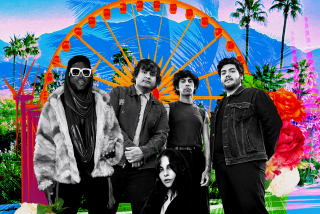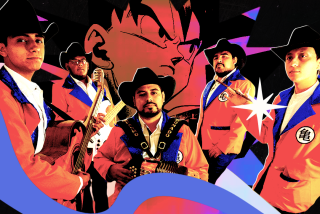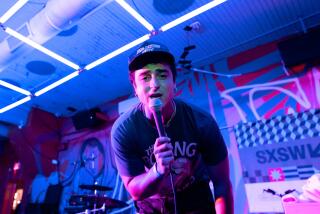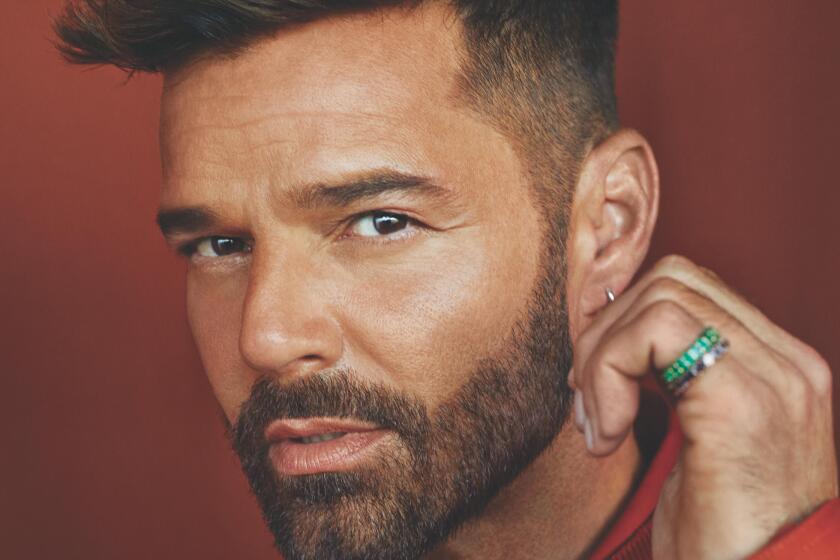At Supersonico Festival, breaking boundaries in Latin alternative
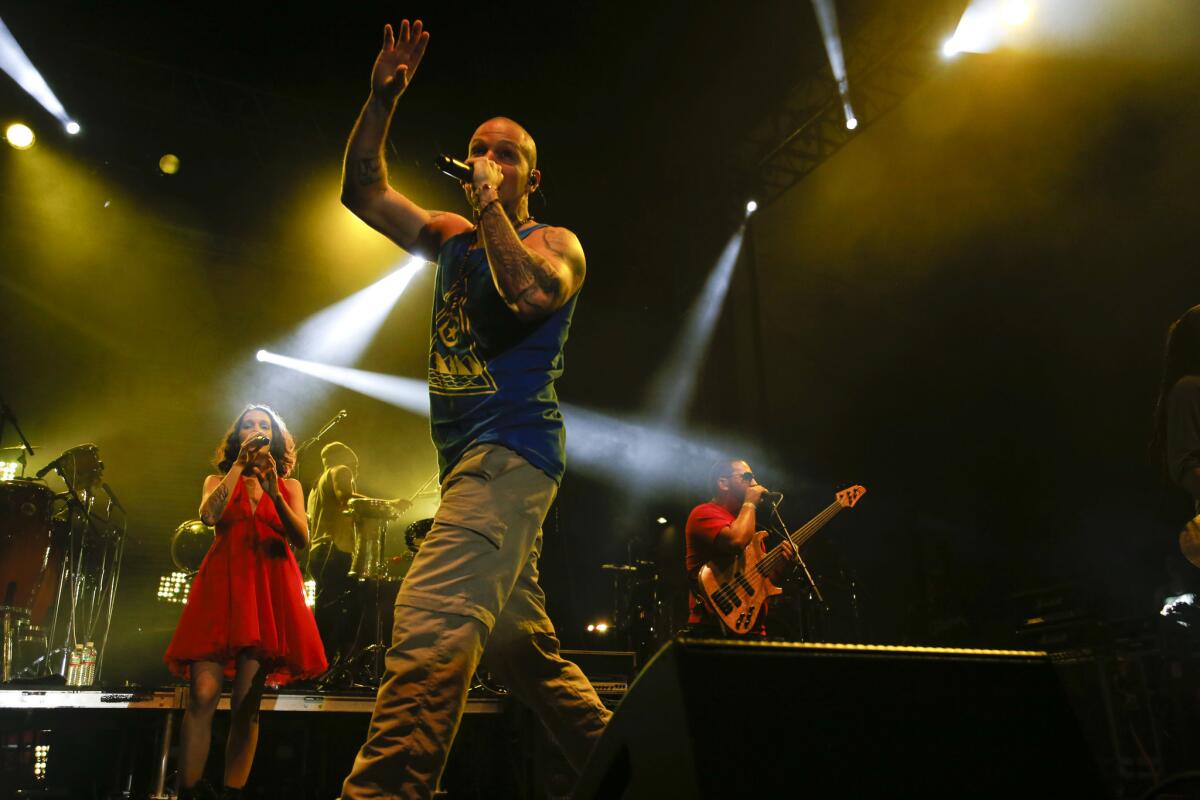
There was a time when banda music listeners would never rub shoulders with ska fans. That time is long gone. As the Latin alternative continues to break boundaries, just as the lyrics of the Calle 13 song “Atrevete” indicate, “Who cares if you like Coldplay?” That doesn’t mean you can’t like cumbia or EDM.
At the Supersonico Festival held Saturday at the Shrine Auditorium in Los Angeles, most concertgoers were Latinos ages 18 to 35, turning out for what was hailed as the first major Latin alternative festival in Los Angeles of the decade.
La Santa Cecilia and Ceci Bastida (Ceci is the diminutive form of the name Cecilia) played early in the day on two of the three stages. Sandi Mayer came to see Ceci Bastida with her 9-year-old daughter, who got half of her face painted Day-of-the-Dead style at one of the festival booths.
Most of the crowd, however, came for the two main acts, Calle 13 and Café Tacuba. Other acts included Tokyo Ska Paradise, a ska band from Japan that has gained attention by playing with Latin ska fusion acts. Some said they had come to see Los Master Plus, who delighted fans with their golden leopard cowboy shirts and cheeky remixed versions of both English and Spanish pop songs. Their “El Gran Vacilón” is an electronic and cumbia -- or as they call it, cumbiatronic -- homage to “The Next Episode” from Dr. Dre featuring Snoop Dogg. Their rendition of “Lambada/Llorando Se Fue,” titled “Fiestiña,” got the crowd roaring.
Another audience favorite was Bomba Estereo from Colombia. Sets from that band and from Café Tacuba contrasted with Calle 13, which moved away from its reggaeton and into a slower tempo with Latin folk music and political lyrics. Lead singer René Pérez Joglar, known as Residente, warned the audience not to forget its roots and ventured into speaking English in a rough accent to criticize political policies here and abroad.
Early on, crowd pleasers Café Tacuba gave its fans “El Baile y el Salon,” whose lyrics about two men falling in love on the dance floor have made the song an anthem for the LGBT community. (It was a wise move, considering concertgoers were singing the chorus from the moment the doors opened.) At another point in the set, lead vocalist Ruben Albarran asked for justice for 43 students who have gone missing in the Mexican state of Guerrero.
Most of the crowd seemed to be local, but students Miriam Urzúa and Alejandro Arabena drove up from San Diego. The natives of Chile came to see Ana Tijoux, a socially conscious Chilean hip-hop act. Baseball and tejano hats bounced to her hit “Somos Sur.”
The one act who got no love was Lizzo, who was left rapping to an indoor audience of no more than 30 people while Bomba Estereo and Tijoux played at an outdoor stage.
Navigating between the outdoor and indoor stages got tricky as lines for the food trucks grew. Omar Violante patiently waited with his friends at the Say Fish Taco line. “I’ve been here for 20 minutes and I’m not even halfway there,” said Violante, who added that he enjoyed Tokyo Ska Paradise.
The scene was laid back. Although some Latin alternative and rock en espanol experts criticized the festival as a showcase for Nacional Records, the label owned by Supersonico organizer Tomas Cookman, Cookman cited the awards and media acclaim Nacional Records performers have garnered. “It just means we pick the right acts,” he said.
Supersonico coincided with another large rock en espanol event. La Tocada Fest at the Observatory in Santa Ana featured the band Rata Blanca from Argentina and Mago de Oz from Spain, as well as world beat act Panteon Rococo and La Maldita Vecindad, a rock en espanol band that has played many times with Cafe Tacuba at other festivals.
Was it a coincidence? Or is it just a sign that two different scenes are developing as the more guitar-oriented acts separate from the bass heavy acts of Latin alternative? Perhaps the old guard of rock en espanol is evolving into the Latin alternative scene. Or perhaps Supersonico didn’t want to encourage mosh pits. Either way, the festival at the Shrine was full of dancing to pop anthems like Maria y Jose’s EDM cover of boy band Magneto’s hit “Vuela Vuela.” Here’s hoping that metal heads will rub shoulders with hip-hoppers at the next Latin alternative festival.
Corrected: An earlier version of this post said La Santa Cecilia and Ceci Bastida opened the festival. They played early but did not open. The post also contained a typographical error in which Tacuba was misspelled as Tacvba.
More to Read
The biggest entertainment stories
Get our big stories about Hollywood, film, television, music, arts, culture and more right in your inbox as soon as they publish.
You may occasionally receive promotional content from the Los Angeles Times.
